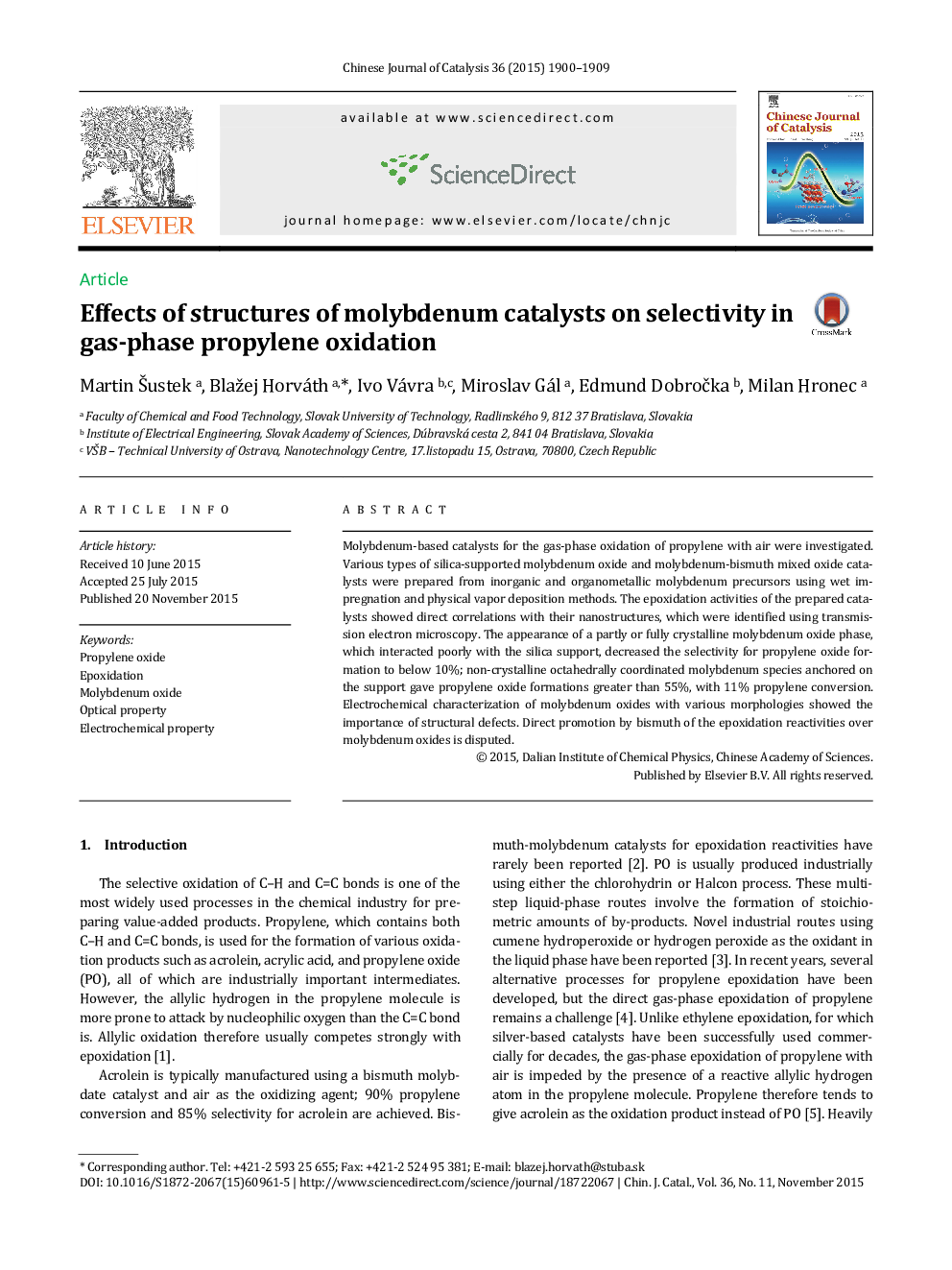| Article ID | Journal | Published Year | Pages | File Type |
|---|---|---|---|---|
| 59808 | Chinese Journal of Catalysis | 2015 | 10 Pages |
Molybdenum-based catalysts for the gas-phase oxidation of propylene with air were investigated. Various types of silica-supported molybdenum oxide and molybdenum-bismuth mixed oxide catalysts were prepared from inorganic and organometallic molybdenum precursors using wet impregnation and physical vapor deposition methods. The epoxidation activities of the prepared catalysts showed direct correlations with their nanostructures, which were identified using transmission electron microscopy. The appearance of a partly or fully crystalline molybdenum oxide phase, which interacted poorly with the silica support, decreased the selectivity for propylene oxide formation to below 10%; non-crystalline octahedrally coordinated molybdenum species anchored on the support gave propylene oxide formations greater than 55%, with 11% propylene conversion. Electrochemical characterization of molybdenum oxides with various morphologies showed the importance of structural defects. Direct promotion by bismuth of the epoxidation reactivities over molybdenum oxides is disputed.
Graphical AbstractSilica-supported molybdenum-based catalysts were tested for gas-phase epoxidation of propylene. The epoxidation reactivity strongly depended on the nature of the molybdenum precursor. Different molybdenum precursors led to the formation of various distinct nanostructure with different catalytic activity.Figure optionsDownload full-size imageDownload as PowerPoint slide
